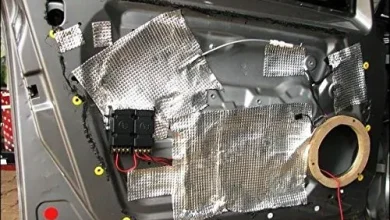What Is a No Claim Bonus and Why Is It Important?

Insurance companies provide policyholders who do not file any claims during the policy period a No Claim Bonus (NCB). It is a benefit for keeping a claim-free record, which shows the insurer that you pose less of a risk. Accumulation of NCB over a number of years can result in significant premium renewal savings, frequently reaching 50%.
This benefit is significant because it promotes careful driving while lowering the overall cost of auto insurance. It also acts as a motivator for drivers to keep their cars in good shape and stay out of collisions.
1. What Is a No Claim Bonus?
Your insurance company will reward you with a no-claims bonus (NCB) if you take good care of your vehicle and do not file an insurance claim during a given year. You can receive a 20–50% reduction on your subsequent renewal as a no-claim benefit.
The policyholder receives a No Claim Bonus (NCB) in exchange for not filing any claims during the policy period. Consider it a thank-you gift from your auto insurance provider for your safe driving and claim-free record.
Your auto insurance premiums might be considerably lowered with a no-claim bonus. Your premium reduction rises with each year that you do not file a claim. Because it directly results in cheaper premiums for your comprehensive and own-damage auto insurance coverage, this is an alluring incentive to drive defensively.

2. How Does NCB in Car Insurance Work?
Claim-Free Year
A policy period in which the policyholder does not submit any insurance claims is known as a Claim-Free Year. A No Claim Bonus (NCB) can be earned by the policyholder as a result of this eligibility, which lowers the renewal premium for the following policy period.
Discount on Premium
The cost of the insurance coverage is decreased by a Discount on Premium, which is frequently given in exchange for keeping a claim-free record. Depending on the number of years without a claim, the No Claim Bonus (NCB) offers reductions of up to 50%.
Transferability
The ability to carry over the No Claim Bonus (NCB) while changing insurance providers is known as transferability. You can transfer the NCB and get a discount on the premium for your new insurer as long as you don’t file a claim during the transition.
Loss of NCB
If the policyholder makes a claim within the policy period, they will lose their NCB. As a result, the policyholder will probably pay a higher premium at the subsequent renewal, and the No Claim Bonus for that year will be canceled.
3. Why No Claim Bonus (NCB) Is Important?
- rate discount: To make auto insurance more reasonable, NCB provides substantial rate reductions for years without a claim.
- Promotes Safe Driving: In order to keep a claim-free record, it encourages drivers to stay out of collisions and take better care of their cars.
- Financial Benefit: Since discounts grow with each year without a claim, it eventually lowers overall insurance prices.
- NCB serves as a reward for driving responsibly, which reduces the likelihood of insurance claims.
- Transferable: If you decide to change insurers, you can keep your benefits and savings.
- Incentive for Vehicle Maintenance: It promotes safe driving practices and vehicle maintenance, which helps to lower the number of traffic accidents.
4. What are the benefits of the No Claim Bonus?
For policyholders with auto insurance, the No Claim Bonus (NCB) provides a number of important advantages. In the first place, it offers substantial premium discounts, which lower the cost of renewing insurance every year without a claim. Long-term premium savings result from the discount growing as a policyholder accrues claim-free years. Incentives for safe driving are provided by NCB, which motivates drivers to steer clear of collisions and file fewer claims.
Additionally, by reducing the total cost of insurance, it encourages responsible auto ownership. Additionally, the bonus is transferable, meaning that policyholders can transfer it to a different insurer when they switch policies, guaranteeing ongoing savings. All things considered, NCB is a useful perk that lowers insurance premiums for policyholders while encouraging cautious and responsible driving practices.
Conclusion
In conclusion, insurance firms give policyholders who maintain a claim-free record for the duration of their policy a beneficial incentive known as a No Claim Bonus (NCB). It offers drivers substantial insurance premium savings, making it an affordable perk. In addition to promoting responsible auto ownership and safe driving, the NCB gradually lowers insurance premiums.
FAQs
1. Is NCB transferable to a new insurer?
It is possible to transfer your No Claim Bonus (NCB) to a different insurer. Your accrued NCB may be transferred if you change auto insurance companies, as long as you have a claim-free history with your prior provider.
2. Does making a claim affect my NCB?
Yes, your No Claim Bonus (NCB) is impacted if you file a claim within the policy period. Your accrued NCB is usually lost if you file a claim, and the discount won’t be available when your insurance is renewed. As a result, the NCB is reset to zero, and you will need to maintain a claim-free record in the years that follow in order to rebuild it.
3. Is NCB available for all types of insurance?
No, not all insurance plans qualify for NCB (No Claim Bonus). Since they cover both third-party liability and damages to the insured vehicle, it is usually only available with comprehensive auto insurance policies. Since third-party liability-only policies do not cover damage to the policyholder’s car, NCB is not applicable to them.



